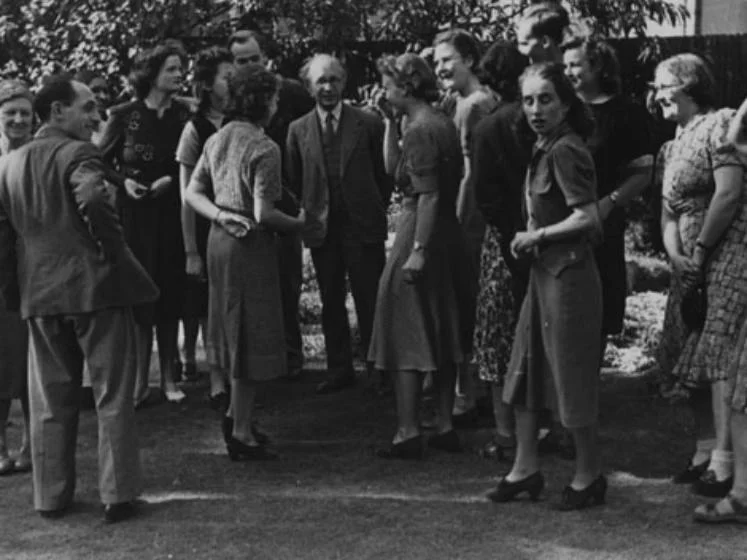Peterhouse anniversary

The 80th anniversary of LSE’s wartime move to Cambridge University was celebrated with a joint public event at Peterhouse to discuss universities’ impact on world order.
Minouche Shafik, Director of LSE, chaired a distinguished panel from both institutions: Professor Laura Diaz Anadon, Dr Patrick Milton, Dr Kristina Spohr, Professor Lord Nicholas Stern and Dr Geraint Thomas.
Bridget Kendall, Master of Peterhouse, opened the event by saying: "I hope tonight will be a delightful opportunity to look back, but also to look forward to how academic achievement can be the impetus to drive change in a troubled world."
Minouche told the audience: "Eighty years ago our predecessors at LSE and Peterhouse took a radical decision rooted in necessity. LSE had to vacate its central London campus in 1939 because of the War to make room for the Ministry of Works. The then director of LSE, Carr-Saunders, and the Master of Peterhouse, Paul Vellacot, agreed that LSE would rent Grove Lodge and that Peterhouse would charge £3 3s a week for board residence.
"Of course necessity is often the mother of invention. But these two organisations were not obvious bedfellows, so to speak. Peterhouse was Cambridge’s oldest college founded in 1284, all male, British and quite conservative. LSE was a young upstart established 591 years later. At that stage LSE was 68% female since most of the men were on war duty, and was populated by assorted immigrants. For example, most of the economics teaching fell to Friedrich Hayek, an Austrian, and Arthur Lewis, from St Lucia in the West Indies – both of whom went on to win the Nobel Prize.
"After some initial awkwardness, they all seemed to get on for six years until 1945 when LSE moved back to Houghton Street. I suspect a lot of people had to jump over their own shadows – mix with people they were not very comfortable with, learn new customs and habits, make compromises to accommodate differences. In modern parlance we would say they got out of their comfort zones and familiar bubbles.
"I think that history holds great lessons for our time. We know what all the social science research shows – mixed groups are more robust, diverse teams deliver better outcomes, people who are exposed and interact with difference are more tolerant. At a time when politics and the media are pushing people into echo chambers, we as universities need to preserve that space for different views colliding into each other. I cannot think of 2 economists more different than Hayek and Lewis or two higher education institutions more different than Peterhouse and LSE in 1939 – yet they happily co-existed and I am sure this place was the richer for it.
"Which brings me to the theme of the power of ideas. I spent most of my career, 25 years, in the so-called ‘real world’ and I know the reality of crisis decision making, market pressures and operating in a second or third best world. Academic life is on a different timetable. But, as always, Keynes was right:
‘Practical men who believe themselves to be quite exempt from any intellectual influence are usually the slaves of some defunct economist. Madmen in authority, who hear voices in the air, are distilling their frenzy from some academic scribbler of a few years back.’
"The key lesson for me is that the academic scribblers need to be working on the right issues so that when these practical men and women are ready to make decisions, we have something interesting and relevant to say. Of course some academics go into the decision making world directly, as did Keynes, Beveridge, Bevin, Robbins and so many more. But the influence of ideas has longer lead times and longer lags. Today is an opportunity for us to think about what those issues are that need new thinking and whose ripple effects we hope to see last for a long time in the years to come. "